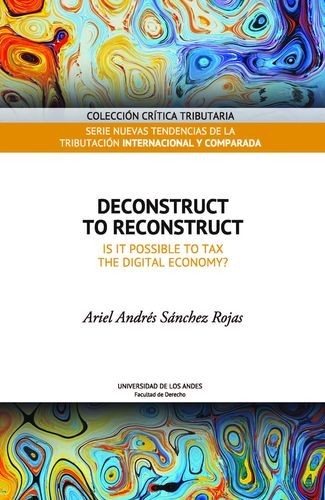- Ebook

Deconstruct to reconstruct seeks to use a modern benefit principle theory that will allow tax authorities to tax companies in the digital economy, assuring they pay taxes in the countries in which they operate. The emergence of a new business models such as app stores, online advertising, cloud computing, participative network platforms, high-speed trading, and online payment services has reshaped the global economy and made it difficult for tax authorities to determine what and where to tax. Technologies in the new digital economy make it possible for companies to operate in countries without being physically present. While companies such as Netflix, Google, and AirBnB provide services and earn profits in different countries, tax loopholes and intricate tax planning enable them to pay little-to-no taxes in many of these countries. For example, Netflix earned more than US$100 billion in Colombia in 2016, but it did not pay any direct or indirect taxes in the country. The absence of a specific tax or legal rule that targets digital companies has prevented Colombian tax authorities from taxing Netflix or any other company of the sort. Many tax authorities around the world have similar experiences.
-
FormatoEbook
-
EstadoNuevo
-
Isbn9789587749199
-
Peso1 MB
-
Número de páginas80
-
IdiomaInglés
-
FormatoPDF
-
ProtecciónDRM
-
ReferenciaBKW37090
